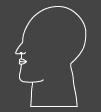
Excerpts: Critical Reviews & Essays

Article Excerpts:
The qualities of acerbic wit, formal precision and contrasting randomness and structure are also characteristic of the work on exhibit by Stephen Daly. Both drawings and sculptures, and some pieces that are a distinctive fusion of the two — “thick drawing” that joins two-dimensional markings on paper with three-dimensional cases and contours are shown. Daly’s marks take a little from Kandinsky, a little from Miro and a little from Wiley. They are organic and geometric abstractions, often ruinic in nature, that have strong narrative potential. These markings create a private language that is intimate, but not completely idiosyncratic. Fields of this drawing, carefully balanced despite a seemingly aleatory impulse, are given weight and density by being encased in deep frames. These frames of black lacquered metal alter our sense of linear contour and are in turn altered by extensions that break into and out of that overall contour.
Excerpt from Probing Sculptural Boundaries
by Marcia Morse
Artweek
Daly’s got his own visual language at work. And it’s plenty whimsical and eccentric. Written text — illegible, nonsensical — weaves and floats around the figures in Daly’s drawings, weaving together with the objects, figures and symbols, some of which hail from other cultures. Men and women talk at each other, their words literally missing each other and bouncing off each other. Daly employs a deliberately primitive style of rendering his figures to good effect: His work has a cartoonish hilarity that’s more than a little subversive in its tone. What to make of all this meaningless language and isolation? It’s a disturbing, but truthful look at human behavior.
Excerpt from Use of Symbolism Strengthens Pairing
by Jeanne Claire van Ryzin
Austin American-Statesman
Rather than static objects of meditation, his sculptures place the viewer in situations that tug at the lower levels of the subconscious, tickling emotions dealing with sexuality, repressed anxieties and dehumanization. But these troubling emotions are balanced with a sense of humor and wonder at the harmony of nature. Daly’s sculptures are intended to work on different levels, pulling the viewer in with easily recognizable symbols, and then subtly triggering a wide range of emotional and intellectual reactions. Daly’s sculptures are a test of the viewer’s imagination, the ability to understand the many different relationships and patterns suggested by the artist’s symbols.
In his most disturbing sculptures, Daly brings together organic and mechanical shapes. ‘Tripod’ is a kind of robotic dog in a three-point stance, with some shapes suggesting sexual organs. ‘Glider’ is like some sort of military weapon melded with living parts. Just as a bomber has human pilots with human emotions and frailties, so ‘Glider’ seems to have some sort of feelings. Will this make it a more responsible weapon, or a more destructive being? In these works, Daly follows science’s rigid notions of a mechanistic universe to frightful conclusions.
Excerpts from ‘2001,’ Rome Blend in Sculpture
by Dan R. Goddard
San Antonio Express-News
Much of Daly’s imagery revolves around the human head, in stylized sculpture as well as two-dimensional profiles. Here he has added the third dimension to works on the wall, affixing cast aluminum and enameled steel objects to paintings and drawings to produce slightly off-kilter, even funny relationships. ‘Engineer’, for instance, pairs a man’s head with an oil derrick, while ‘Double Still Life’ shows an approximation of the same vase-on-table scene in flat and dimensional formats. And ‘Man in the Middle’ features a metal “mask” centered on a large-scale work loaded with the pieces of dreams, hopes and aspirations.
Excerpt from The Symbolism’s Getting Thick
by Mary Voelz Chandler
Rocky Mountain News
